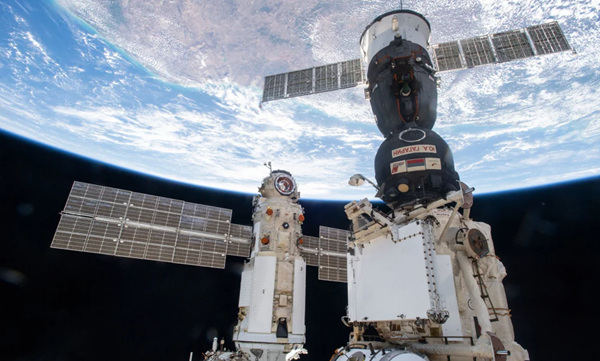Panoramic view of the serious leak that occurred on the ISS station
A Russian-controlled compartment on the International Space Station (ISS) leaked, causing pressure and air to escape.
The ISS must be pressurized and filled with breathable air to accommodate multiple research teams of astronauts.
NASA is concerned about a dangerous incident that could jeopardize the safety of astronauts.
In addition, Bob Cabana, Chairman of the ISS Advisory Committee, said the Russian side believes that future missions are still safe, but the American side thinks differently.
Currently, the US is preparing to establish its own group of experts, Russia has not yet sent experts to participate.

Identify and treat leaks
For years, NASA and Roscosmos have known that the Zvezda module was gradually leaking.
Many efforts have been made to minimize the leak, but NASA says the leak rate remains at 2 to 2.5 pounds of gas per day.2– Simulate atmospheric pressure on Earth at sea level.
The two Russian and American technical teams do not have the same opinion about the real cause of this problem.
NASA and Roscosmos agree that if the leak reaches “unsustainable” levels, the problem area will be permanently closed.
Measures to prevent natural disasters
While waiting for the consensus, the astronauts had to take a number of measures to prevent accidents.
The ISS is gradually decreasing
On the US side, although the ISS will still operate when the leaking tunnel closes, there will only be one port left, so supply transportation will be severely affected.
The ISS needs spacecraft to dock regularly to prevent Earth’s gravity from pulling it down.
The leak will become more serious as NASA works with partners in Russia, Canada, Europe and Japan to keep the ISS operating until at least 2030 when a replacement space station becomes operational. dynamic.
However, NASA astronaut Michael Barratt warned: “The ISS is not new anymore.

